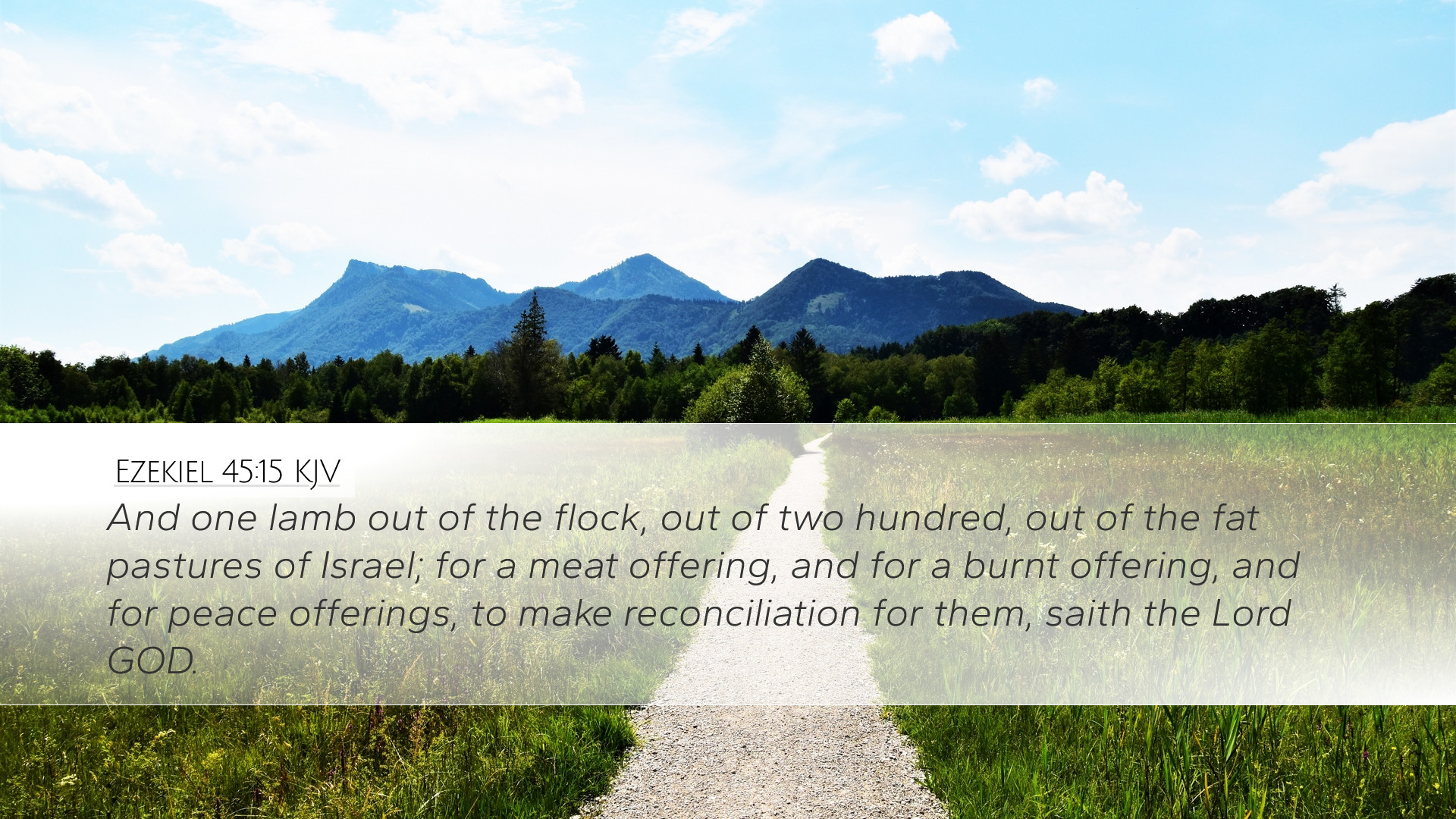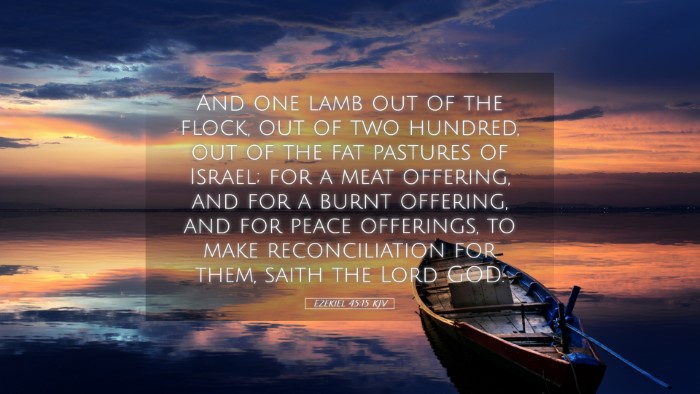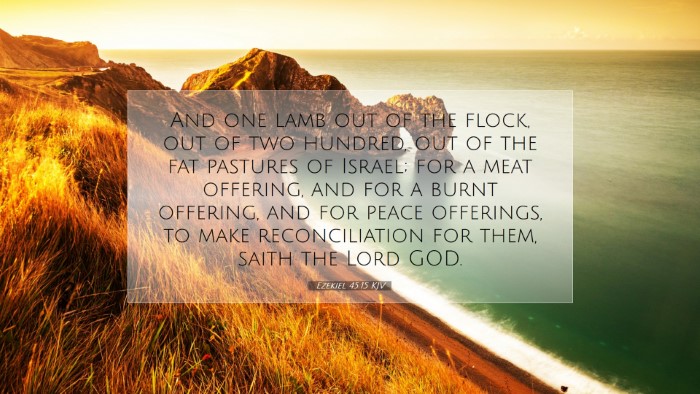Ezekiel 45:15 - A Commentary
Verse Text: "And one lamb out of the flock, out of two hundred, out of the fat pastures of Israel; for a meat offering, and for a burnt offering, and for peace offerings, to make reconciliation for them, saith the Lord God."
Contextual Overview
Ezekiel 45:15 is situated within a larger discourse in the Book of Ezekiel that outlines the future temple, its services, and regulations for worship in the restored Israel. The prophet Ezekiel shares God’s vision for the people, highlighting both their need for redemption and the means by which they may achieve reconciliation with God. This specific verse details the obligations regarding offerings that the people must fulfill as a part of their worship and atonement practices.
Significance of Offerings
-
Matthew Henry:
In his commentary, Henry emphasizes the necessity and purpose behind the offerings. He states that these offerings are essential for acknowledging the sovereignty of God and serve as a means to express gratitude and repentance. The lamb symbolizes purity and innocence, essential qualities in sacrificial offerings.
-
Albert Barnes:
Barnes details the proportionality in the sacrificial system, noting how the number of lambs—one from every two hundred—suggests the abundance of the flock and showcases God's provision. This serves as a reminder of human dependence on divine grace for sustenance and reconciliation.
-
Adam Clarke:
Clarke highlights the significance of animals selected for sacrifice. The specific mention of a lamb resonates with the themes of redemption and restoration, which find their ultimate fulfillment in Christ, the Lamb of God, who offers comprehensive reconciliation for humanity.
Theological Implications
The careful attention to the sacrificial system elaborated in Ezekiel demonstrates God's desire for His people to maintain a relationship with Him through structured worship. These offerings become a means of approaching God's holiness and a mechanism for atonement.
-
Matthew Henry:
Henry notes that God’s laws were given not as an end in themselves but as a reflection of God's character and holiness. The complexity of these regulations points to the seriousness with which God views sin and the ultimate cost of redemption.
-
Albert Barnes:
Barnes emphasizes that the offerings function as symbols of the heartfelt devotion and service expected from the people. The economic realities present in this structured approach to giving reflect the community's role in maintaining the covenant with God.
-
Adam Clarke:
Clarke draws connections between the sacrificial system in Ezekiel and its fulfillments in the New Testament. He notes that Jesus' sacrifice provides a perfect reconciliation that surpasses the Old Testament system, establishing an enduring covenant relationship with God.
Practical Applications for Today
The principles of Ezekiel 45:15 can offer contemporary believers valuable insights into worship, community, and reconciliation.
-
Worship as a Communal Activity:
The communal aspect of offering—one lamb for every two hundred—encourages collective participation in worship and emphasizes the shared responsibility of the believers to support one another in their spiritual journeys.
-
Understanding Atonement:
The significance of the sacrificial lamb invites modern congregations to reflect on Christ's ultimate sacrifice. It calls believers to consider the implications of atonement and their personal responsibility in maintaining their relationship with God.
-
Responsibility to God:
The verse reframes our attitude toward giving and offerings, encouraging believers to approach these acts not merely as obligations but as opportunities to display gratitude and fidelity to God’s calling.
Conclusion
Ezekiel 45:15 conveys rich theological truths about offerings as acts of worship, serving as instruments of reconciliation. The insights gleaned from the timeless public domain commentaries of Matthew Henry, Albert Barnes, and Adam Clarke underscore the depth and applicability of this verse for modern believers. As pastors, students, and theologians engage with this text, they can appreciate both its historical significance and its profound implications for Christian faith and practice today.


